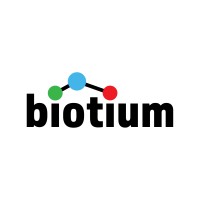Thymidylate Synthase Monoclonal / CF594 / TMS715
Product Details
| Description | Thymidylate Synthase Monoclonal Mouse Antibody (TMS715) | |
|---|---|---|
| Conjugate | CF594 | |
| Clone | TMS715 | |
| Target Species | Human | |
| Applications | FC, IF, IHC-P | |
| Supplier | Biotium | |
| Catalog # | Sign in to view product details, citations, and spectra | |
| Size | ||
| Price | ||
| Antigen | ||
| Host | ||
| Isotype |
About Thymidylate Synthase
Thymidylate synthase catalyzes the methylation of deoxyuridylate to deoxythymidylate using, 10-methylenetetrahydrofolate (methylene-THF) as a cofactor. This function maintains the dTMP (thymidine-5-prime monophosphate) pool critical for DNA replication and repair. The enzyme has been of interest as a target for cancer chemotherapeutic agents. It is considered to be the primary site of action for 5-fluorouracil, 5-fluoro-2-prime-deoxyuridine, and some folate analogs. Expression of this gene and that of a naturally occurring antisense transcript, mitochondrial enolase superfamily member 1 (GeneID:55556), vary inversely when cell-growth progresses from late-log to plateau phase. Polymorphisms in this gene may be associated with etiology of neoplasia, including breast cancer, and response to chemotherapy. [provided by RefSeq, Aug 2017]
Thymidylate synthase catalyzes the methylation of deoxyuridylate to deoxythymidylate using, 10-methylenetetrahydrofolate (methylene-THF) as a cofactor. This function maintains the dTMP (thymidine-5-prime monophosphate) pool critical for DNA replication and repair. The enzyme has been of interest as a target for cancer chemotherapeutic agents. It is considered to be the primary site of action for 5-fluorouracil, 5-fluoro-2-prime-deoxyuridine, and some folate analogs. Expression of this gene and that of a naturally occurring antisense transcript, mitochondrial enolase superfamily member 1 (GeneID:55556), vary inversely when cell-growth progresses from late-log to plateau phase. Polymorphisms in this gene may be associated with etiology of neoplasia, including breast cancer, and response to chemotherapy. [provided by RefSeq, Aug 2017]
About CF594
CF®594 from Biotium is a fluorophore with an excitation peak at 593 nm and an emission peak at 614 nm. It can be useful in both fluorescence microscopy and flow cytometry. It is spectrally similar to Alexa Fluor™ 594, DyLight™ 594 and Texas Red. However, in flow cytometry, PE-CF®594 and PE-Dazzle 594 are superior alternatives. In microscopy, CF®594 has been validated in STED and 2-Photon microscopy.
CF®594 from Biotium is a fluorophore with an excitation peak at 593 nm and an emission peak at 614 nm. It can be useful in both fluorescence microscopy and flow cytometry. It is spectrally similar to Alexa Fluor™ 594, DyLight™ 594 and Texas Red. However, in flow cytometry, PE-CF®594 and PE-Dazzle 594 are superior alternatives. In microscopy, CF®594 has been validated in STED and 2-Photon microscopy.
Experiment Design Tools
Panel Builders
Looking to design a Microscopy or Flow Cytometry experiment?
Validation References
Reviews & Ratings
| Reviews |
|---|
Looking for more options?
782 Thymidylate Synthase antibodies from over 25 suppliers available with over 51 conjugates.





